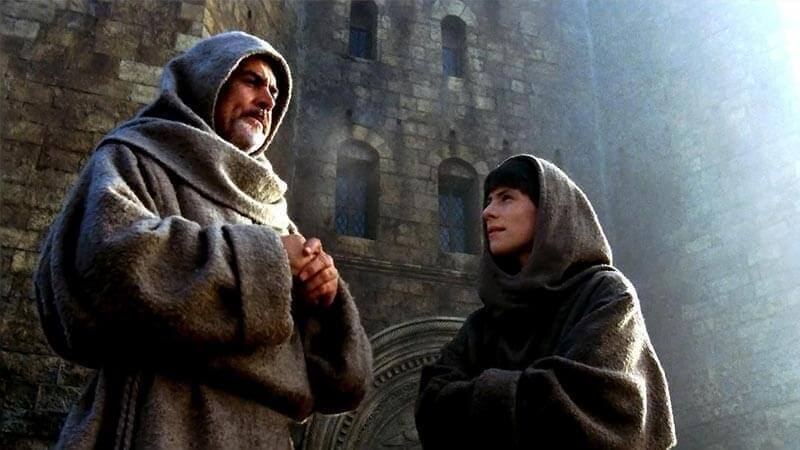The script for “The Name of the Rose”, published in 1980 and also adapted to cinema, is quite unique. It is a Benedictine abbey located in the Apennines during the year 1327. The Franciscan Guilherme de Baskerville and his faithful companion Adso de Melk will go there, without imagining the disturbing mystery that awaits them. Guilherme, with his dark past as an inquisitor, was entrusted with the task of participating in an encounter where the so-called heresy of a branch of the Franciscans: the spirits would be discussed.
In addition to this scenario, Umberto Eco has created a police novel that allows the reader to wander through the customs of the Middle Ages, on its darker and crueler side, a historical scenario in which religion gave and took power, granted whims or destroyed. he lives in the name of a God who, in addition to being omnipotent, was portrayed as punitive, contrary to all banal amusement and his most natural expression: laughter.
- The name of the leading monk.
- Guilherme de Baskerville.
- Is far from random.
- Umberto Eco named Guilherme after the well-known philosopher Guilherme of Ockham.
- No doubt famous for his famous “Ockham Knife”.
- This particular principle states that where there are Two hypotheses that explain the facts with the same number of correct answers.
- The simplest must prevail.
- This idea can be used in all fields.
- Including science.
- The modern formulation of this requirement is the criterion of parsimony or simplicity.
This criterion is also very much present in the behavior of one of the best-known detectives in history: Sherlock Holmes. Guilherme’s surname, Baskerville, is linked to one of Sir Arthur Conan Doyle’s most famous cases, The Baskerville Dog.
The explanation of the origin of the brother’s name would be a joke if it were not beyond, it is a statement of intent for the way Guilherme acts, who will spend much of his stay at the abbey trying to solve the crimes that occur. , in a rhythm reminiscent of another famous mystery novel: “The case of the ten negrinhos ?, Agatha Christie.
Another reference to history has to do with the administrator of the vast library of the convent. We are talking about Jorge de Burgos and his literary reference, Jorge Luus Borges. In the words of the author: ?? The library and the blind can only give Borges, also because the debts are paid ?.
It is precisely this character who is at the origin of the murders that follow in the abbey, all because of his eagerness to prevent the publication of Aristotle’s second book of poetry, a book dedicated to humor, which the monk feared because he believed that laughter was nothing more than a diabolical wind that distorts traits and makes men look cute.
George, like many religious of the time, believed that laughter was characteristic of uneducated and savage peoples, but that it should be taken out of the Church so that intellectuality, which in these dark moments revolved around it, did not adopt it as an instrument of truth . . . The church feared that comedy would deprive man of God’s fear, so that he would no longer follow his precepts.
Frei Jorge thought that laughter was the antidote to fear, that out of fear of the devil men turned to God, without that fear there was no reason why men should not mock God as they did with the rest of the elements. However, in Jorge’s office there is his own condemnation which, as a fan of books, is in favor of the control of knowledge and not of its destruction; In this way, you will only follow this path when you become aware that it has been discovered by Guilherme and that you have no choice.
In the film?The name of the rose ?, we can also see another classic medieval confrontation between reason and faith, is the confrontation that occurs between the inquisitor Bernardo Gui and Guilherme, who will remove the foundations of the church with the birth of the Protestant Reformation and the heyday of the Enlightenment.
Book or movie, “The name of the rose? It represents a moment of pleasure for those who appreciate good literature and a plot that, in addition to being mysterious, speaks of our condition, of the human condition.

